Listen……..Do You hear it?……….. Be still and listen………
That, my brothers, and sisters is the sound of silence. In our world today we are inundated with noise and other distractions. We live in a society where we are always on the go and there is no time for silence. We are always going to the next activity, planning the next meal, running to this practice, that rehearsal, all the while working at our jobs and trying not to bring them home to our families. We have our radio, our television, our cell phones, and social media. All these things distract us from our life, from our prayer, from the awareness that God is present in our lives.
Silence is the foundation of a prayer life. In prayer, in the silence of our hearts, we can talk to God, and more importantly, he can talk to us. Our silence in prayer makes us receptive to the Holy Spirit. It allows God the opportunity to speak to us in our hearts and soul. Our silence is a sign of docility to the working of the Holy Spirit in our lives. It shows our desire to know what God’s plan is for our lives and how we are to respond. We see this docility in the silence of St. Joseph.
In the gospel accounts, Saint Joseph stands as the model for silence. He never speaks a word. God comes to him in his dreams and reveals to him the next step in following God’s plan for the Holy Family. Saint Joseph responds with silence. No words of questioning. No words of acceptance. No words at all.
Silence is typically defined as a negative, as an absence. The silence of Saint Joseph may be seen as weakness, as an inability to grasp the importance of the moment. Silence can be seen as complicity, complacency, or acceptance without the fortitude to stand for one’s convictions.
However, this is not what the silence of Saint Joseph teaches us. In his silence, Saint Joseph listens to the word of God. In his silence, Joseph contemplates God’s will for his life. He is instructed by the word of God. Pope Benedict explains that “St Joseph’s silence does not express an inner emptiness but, on the contrary, the fullness of the faith he bears in his heart and which guides his every thought and action.”
We hear not a word from the lips of St Joseph in the Gospels and yet his sanctity shines through his silence. His total fidelity to God can be seen in his actions as he accompanies the Blessed Virgin Mary to Bethlehem and becomes the first man to see the Christ-child; as he leads his family to safety into exile and ultimately brings them home to Nazareth; as he searches with Mary for the boy Jesus and finds him in the temple after which, Scripture tells us, Jesus lived under his parent’s authority.
St. Joseph is a humble man of action rather than one of excess words and noise. He simply gets up and does God’s will without question. In his silence, Saint Joseph becomes the humble servant of God for his actions speak louder than his words.
St. Joseph’s silence is a sign of his humility. In his humility, St. Joseph is obedient to God’s will. He does what he is asked, out of love of God, and love of his family. St. Joseph willingly sacrifices his own desires and plans to meet the needs of his wife and child. For this reason, he is called the Guardian of the Virgin and Savior of the Savior. St. Joseph’s humility is an important part of our salvation, as he protects Jesus and Mary by taking them to Egypt and returning to Nazareth once it was safe.
Humility is another word with negative connotations. The societal view of humility is weakness. A humble person is seen as a non-assertive doormat, as disengaged and not driven for success. Humility is often misunderstood as humiliation. Humiliation means the loss of respect for one’s self or the loss of respect from others. Humiliation denies a person their God-given human dignity. Humiliation can lead to addiction, mental anguish, and self-harming.
Understanding the humility of St. Joseph helps us to not only put a proper perspective on what it means to be humble but also on what it means to respect one’s self, to love others, and to be successful.
The word “humility” derives from the Latin word “humus” meaning “earth.” Humility literally means being grounded. St. Joseph was grounded. He understood that he was not God. He also understood that God had a plan for his family and that he had an important role to play in that plan. St. Joseph’s humility shows complete love and trust for God the Father and sacrificial love for his wife and child.
We are called to be humble like St. Joseph. To love God with our whole heart, our whole mind, and our whole strength. (cf. Luke 10:27) We are called to express that love through sacrificial love for others, especially members of our family, but also for the poor and marginalized of our society. Humility calls us to judge situations and circumstances and not people. Humility calls us to understand that we are not God and that success is not measured in how big our bank account is, how fancy our car is, or if we are the CEO of a Fortune 500 company.
Humility is an inner strength that is forged by prayer and constant practice. It is confidently living life with sincere trust in God’s providence. Humility provides the graces necessary to face persecution, ridicule, and suffering from the assurance that God will reward our struggles with everlasting joy. Humility helps us to see that success is not measured by achievements, but in love of God, neighbor, and self. To be truly successful in this life means to learn to love as God loves. How much does God love? He loves us to the point of humbling himself to take on our human nature with all its frailty and dying on a cross for our salvation. He died for your personal salvation and mine. If you were the only person on the earth, Jesus would have died for you because he loves you and wants to spend eternity with you!!! Let that sink in. The creator of the universe humbled himself to die for you out of love, so he could spend eternity with you. Christ’s humility is not a sign of weakness, but a sign of the strength of pure love.
St. Joseph in his humility plays an important role in our salvation. He responds to God’s call to the earthly father of the Savior of the world. Through St. Joseph’s silent yes, his humility, and his commitment to his love for Jesus and Mary, we are embraced by the eternal love of God.
“Let us allow ourselves to be ‘filled’ with St Joseph’s silence! In a world that is often too noisy, that encourages neither recollection nor listening to God’s voice, we are in such deep need of it”. Let us pray as if everything depends on God and work as if everything depends on us. Let us enter into the love and strength of St. Joseph’s humility so that we can bring Jesus to our world and offer it the love and salvation it truly needs. With St. Joseph as our role model and protector, let us humbly seek to do God’s will each and every day in faith, with hope, and through love.
St. Joseph, silent and humble servant, pray for us.
Deacon Scott A. Root
St. Katharine Drexel Parish
Mechanicsburg, PA



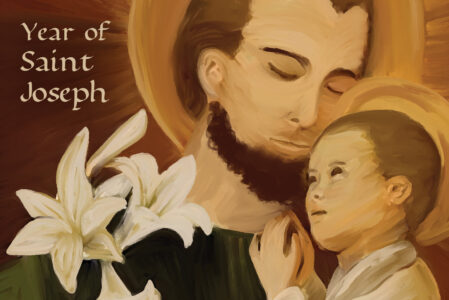



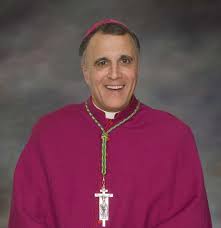
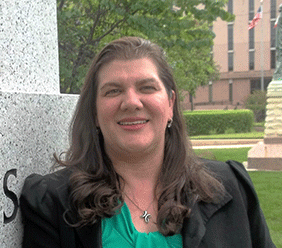
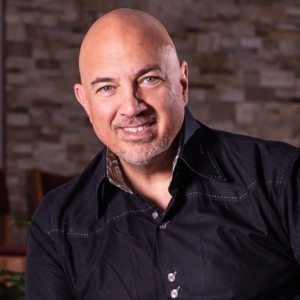
 Kimberly Kay Cox
Kimberly Kay Cox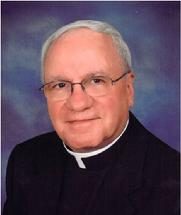







 Mark Mogilka
Mark Mogilka




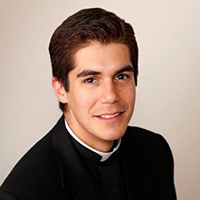
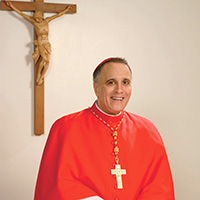








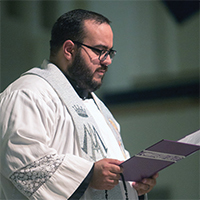



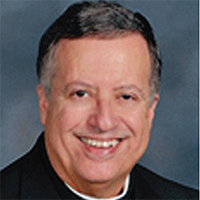

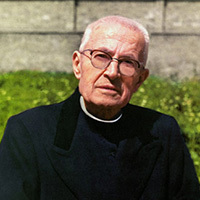







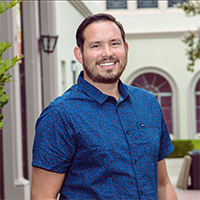
 Armando Cervantes
Armando Cervantes Anna Betancourt
Anna Betancourt
 Andrea Chavez-Kopp
Andrea Chavez-Kopp